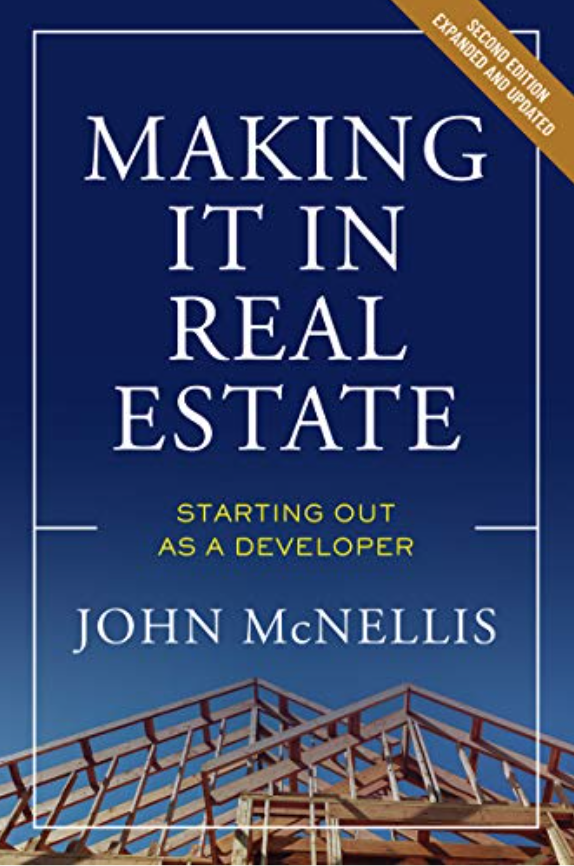If you’re in real estate, if you’re developing or simply investing in property, you’re in the business of borrowing money. And if you’re a serial borrower, you have a chore to do every January: You must prepare your personal financial statement for your bankers. Unlike the reporting requirements for public companies, financial statements for individuals are simple (at least in concept): a balance sheet that lists all liabilities and assets, deducts the one from the other, thereby producing a statement of net worth.
Broadly stated, real estate liabilities are as objective as your body temperature; reporting them is easy, a matter of faithfully recording numbers. If you list the year-end balances on all of your commercial and private loans, credit cards, taxes due, etc., you’re home-free. Besides, you might as well be accurate and complete; loan balances are easy to verify by curious credit departments.
Assets are another story. Valuing property is more subjective than judging a cake-baking contest. Think about it: Appraisers use three different approaches to evaluate a commercial property—replacement cost, income capitalization and comparable sales. While less voodoo than, say, oh, psychology or economics, appraising is still as much art as science. Frank appraisers will admit their methodologies are worm-holed with judgment calls. And since they’re working for the lenders, these dispassionate professionals have zero interest in over-valuing your buildings. While they usually come up with a value that won’t kill the deal, they seldom give you a penny more than you need. Properly viewed, there’s a distinct upside to this. If you use your lender’s appraised value for your assets, neither your judgment nor honesty is likely to be questioned. In short, that third party appraisal provides a safe harbor for your valuations.
If you know how rich you are, you’re not that rich
A friend whose net worth starts with a “b”
It may not be unfair to posit that every investor in America is hell-bent on growing her net worth every year and that the easiest way to do this is to goose her numbers a little bit (as opposed to developing a successful new project). As with the millions who subtract pounds and add inches to their dating site profiles, it’s very tempting to push values. While choosing a property value that can only be achieved—like a summiting of Everest—at a brief moment in time may not be outright fraud, it’s still kinda dumb.
Why? Your bankers are smart. If they think you’re bullshitting them on simple reporting requirements, how much are they going to trust you when it hits the fan?
What do we do with our financial statements? We carry our properties at the bank-appraised values until long after the original appraisals have become meaningless. And when we do eventually abandon outdated appraisals, we value our properties based on a capitalization rate worse (about 100-125 basis points) than the market rate; that is, we under-value our properties. (My long-time partner Mike Powers gets all the credit for this approach.)
This fiscal conservatism has a couple obvious benefits and one obscure one that hopefully you’ll never enjoy. First, nothing makes a banker feel cozier than a low-ball valuation. Second, when the next recession arrives, you won’t have to whack your net worth by 10 to 20 percent, because you’ve already baked that nasty dip into your numbers. Finally, if there’s the slightest chance you might divorce someday, consider this: If you plant your financial statement atop Mt. Everest, your spouse’s divorce lawyer will wave that statement in court and demand half. When you say whoa—the market crashed, the recession hit—that $25 million net worth you posted a couple years ago is now a mere $10 million, your hurting spouse won’t believe a word and the already ugly process will only get worse. You will be faced with answering that age-old legal question, “Were you lying then or are you lying now?” This has happened to two of my friends.
Let’s put this suggestion into perspective. I asked a friend whose net worth starts with a “b” how he values his buildings on his financial statement. He said he lists his properties at their depreciated book value, regardless of their current market value. This approach means that if he bought an office building thirty years ago for, say, $1 million, he reports it today on his financial statement at $500,000 to account for his depreciation…even though the building’s fair market value may be $20 million. This is the financial statement equivalent of Jeff Bezos flying stand-by on Jet Blue. While marveling over this approach’s jaw-dropping conservatism, I pointed out that he could never figure out his net worth from such a statement. He replied, “If you know how rich you are, you’re not that rich.”


